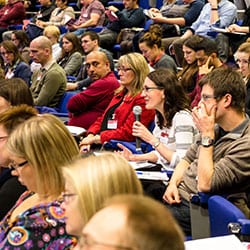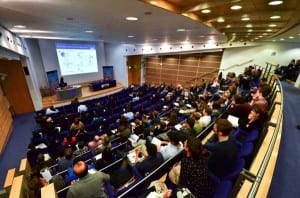UCL Infection, Immunology and Inflammation Symposium 2014
By ucyow3c, on 2 December 2014
Written by Yusuf Topal, first year PhD student
Discoveries in infection, immunology and inflammation (III) are defining 21st-century medicine, shifting the paradigm of almost every clinical discipline.
This is reflected by the broad scope of research taking place at UCL, as showcased at this year’s UCL III Symposium, held at the UCL Institute of Child Health on 24 November.
The UCL III Theme is a large cross-disciplinary research community, which helps to facilitate interaction and collaboration across UCL and its partner hospitals and organisations.
The amalgamation of III scientists and clinicians across UCL have already unlocked some of the long kept secrets of diseases such as HIV, cancer, malaria, TB, asthma and arthritis. Such a collaborative culture also provides a rich platform for aspiring PhD students and postdoctoral scientists.
 Close
Close





